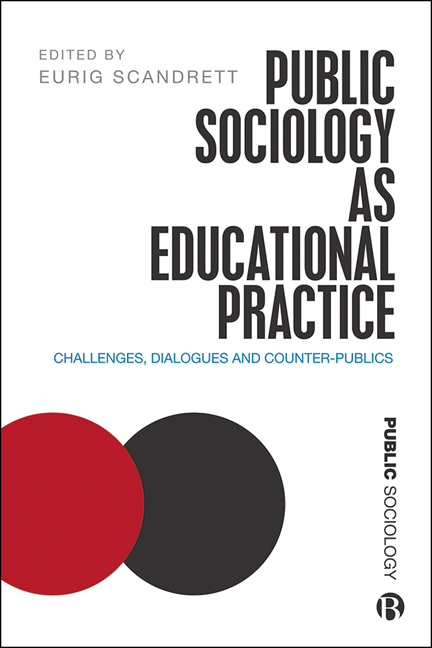II.6 - The Construction of ‘Public Knowledge’ within Community Planning Partnerships: Reducing Structurally Embedded Inequalities at Local Level?
Published online by Cambridge University Press: 02 March 2021
Summary
Introduction
The concept of ‘public knowledge’, how it is created, its role and influence has become central to understandings of forms of democratic community engagement, which are designed to address economic, social and economic inequalities at local level (Fraser, 1990; Williams, 2008; Bivens et al, 2015; Hall et al, 2015). Whilst there is substantive theoretical and empirical evidence elevating the role of public knowledge in building social capital, and equipping people with citizenship skills that are central to community building, the role and potential of transformative forms of public knowledge co-generated by people experiencing inequalities as ‘cognitive praxis’ is less understood (Eyerman and Jamison, 1991). As a recent World Science Report argues:
There are key opportunities for a transformative knowledge agenda that is co-constructed with those who are experiencing inequalities and are in a position to influence change through policies, practices and politics … In a world in which knowledge shapes power and voice, and vice versa, the fundamental inequality in the production of knowledge about inequality itself must be addressed. (International Social Science Council, 2016: 275)
The co-generation of knowledge between ‘publics’ at community level, academics, and policy makers has been central to recent place-based approaches to joint planning, resourcing and delivery across Scotland's local authority areas. The notion of ‘community empowerment’ legally constituted with the Community Empowerment (Scotland) Act (Scottish Government 2015) is pivotal to these approaches. Underlining this, the social rationale for place-based approaches is rooted in ideals of ‘democratic engagement’, ‘accountability’ and ‘greater responsiveness in decision making’ (Scottish Government, 2016).
Critically, however, whilst these principles are firmly cemented into the policy architecture of community planning partnerships (CPPs), the operationalisation of these principles raises a number of questions. Exemplifying this, the concept of ‘democratic engagement’ is located within a wide continuum of interpretations. Here, ‘democratic engagement’ may be limited to a dialogical process enabling communities to clearly articulate welfare needs and priorities to local and national government. At the other end of the continuum, notions of ‘democratic engagement’ may enable communities to actively challenge the external causes of inequalities, which have created these welfare needs and priorities in the first place (Revell and Dinnie, 2018).
- Type
- Chapter
- Information
- Public Sociology as Educational PracticeChallenges, Dialogues and Counter-Publics, pp. 199 - 216Publisher: Bristol University PressPrint publication year: 2020
- 1
- Cited by



